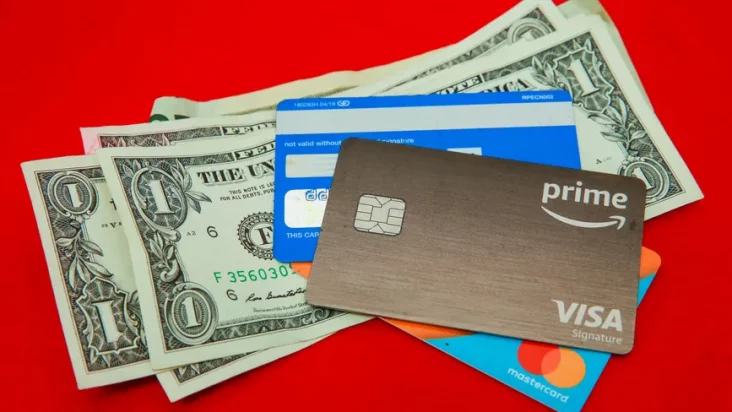Credit card debt remains a slow-motion disaster for millions of Americans. As of the third quarter of 2021, Americans held $800 billion in credit card debt, with an estimated 3.2% of that pile flowing into major delinquency, according to the Federal Reserve Bank of New York. And, given the credit card industry’s sky-high interest rates, once you fall behind on payments, it can be difficult to catch up.
If you feel like your efforts to pay down your credit card debt aren’t working, debt consolidation can combine all of your credit card balances into one monthly payment, ideally with a lower interest rate. There are a number of consolidation strategies worth exploring and we’ll run you through each to help you identify which is best for you.
1. Balance transfer card
Best for those with high credit scores who can repay their debt within 1-2 years
A balance transfer credit card consolidates your existing credit card debt onto one card with one main benefit — a low introductory interest rate. Most will offer a 0% introductory APR on balance transfers for between 12 – 24 months, allowing you a longer timeline to pay down your debt without worrying about interest. Balance transfer cards often charge a fee for each balanced transferred — typically between 3% to 5% — which can really add up when transferring large balances.
Pros
Lock in 0% or low introductory APR for a year or more
Some cards offer long introductory periods, up to 24 months
Cons
Most cards with low or no intro APR charge balance transfer fees between 3% to 5%
Can lead to more debt at a higher APR if the balance is not paid off during the promotional period
Typically requires great or excellent credit to qualify for 0% APR
2. Debt consolidation loan
Best for anyone with high debt balances
A debt consolidation loan is an unsecured personal loan that offers a fixed interest rate lower than most credit card APRs and repayment terms spread out over several years. This type of loan may be a better option for those who can’t qualify for a balance transfer credit card with a 0% introductory APR. You can even prequalify for a debt consolidation loan without affecting your credit score, so you can decide if this debt consolidation method is right for you.
Credit unions, banks, and online lenders usually offer debt consolidation loans — credit union debt consolidation loans typically have better interest rates and more flexible loan terms than other lenders. Shopping around for debt consolidation loans can help you find the right terms for your personal debt situation.
Pros
Fixed repayment schedule
Longer period to pay off debt
May be able to prequalify without affecting credit score
Lower interest rate than most credit cards
Can secure a debt consolidation loan with less than perfect credit
Cons
Must meet individual lender requirements to qualify
Some debt consolidation loans charge an origination fee
Interest rates are based on your credit score
3. Home equity loan, home equity line of credit (HELOC) or refinance
Best for homeowners with fair to average credit
Homeowners can use a home equity loan, home equity line of credit or refinance to consolidate their debt. A home equity loan is a second mortgage taken against the equity you’ve accrued in your home that provides a lump sum of cash with a fixed interest rate. A home equity line of credit, or HELOC, is also based on your home’s equity but works more like a credit card, offering you a revolving credit line you can access when needed. You’ll only pay back the amount you take out, plus interest, with a HELOC. And, if you have enough equity in your home, you can use a cash-out refinance to roll your credit card debt into a significantly lower interest rate.
A home equity loan or HELOC can help with debt consolidation, but the risks are higher — if you default on either, you could lose your home to the lender. That said, this can be a good option for homeowners with equity in their home that have the discipline to pay off the loan responsibly, without missing a payment.
Pros
Typically lower interest rates than a personal loan
May qualify for better terms even without good credit
Lower monthly payments extended over a longer repayment period
Cons
Must have equity in your home to qualify
May require additional fees like an appraisal or closing fees
Could lose your home if you default on the loan or line of credit
4. Credit counseling/debt consolidation programs
Best for anyone who doesn’t qualify for most debt consolidation options
Credit counseling services can help you understand your finances and how you got into credit card debt in the first place. They also help you create a plan to pay off your debts, which may include a debt consolidation program. There are various nonprofit credit counseling services, which offer their services for free or a small fee. Credit counselors can also help you negotiate lower interest rates and fees.
With a debt consolidation program, you pay one fixed monthly fee that’s divided and sent to your creditors. A debt consolidation program does not affect your credit score and may be ideal for someone who can’t qualify for other consolidation methods. There are many credit counseling scams online, so be sure to thoroughly vet a company before paying any money. The FTC has a good checklist to follow when interviewing credit counseling services.
Pros
Won’t negatively impact your credit score
Can reduce interest rates and fees
Fixed monthly payments
Available to those with less than favorable credit
Cons
May require service and monthly fees unless working with a nonprofit organization
Could takes years to pay off debt
Credit usage may be frozen while in debt management
5. 401k loan
Best as a last resort
If you have an employer-sponsored retirement plan like a 401(k), you may be able to take a loan against as much as 50% of your balance to pay down existing debt. There is no credit check involved, and interest rates can be lower than other debt consolidation methods. A 401(k) loan usually has a five-year repayment schedule, but the total loan amount plus interest will become due if you lose or quit your job.
While taxes are not owed on a 401k loan that’s repaid, if you can’t repay the loan, it can then be considered taxable income, and you’ll be required to pay taxes and early withdrawal penalty fees.
Pros
Lower interest rates
No effect on credit score
Five-year, fixed repayment schedule
Cons
May reduce your retirement income
Subject to taxes and penalties if you can’t repay
Becomes due in full if separated from the employer
Has caps on the amount you can borrow


